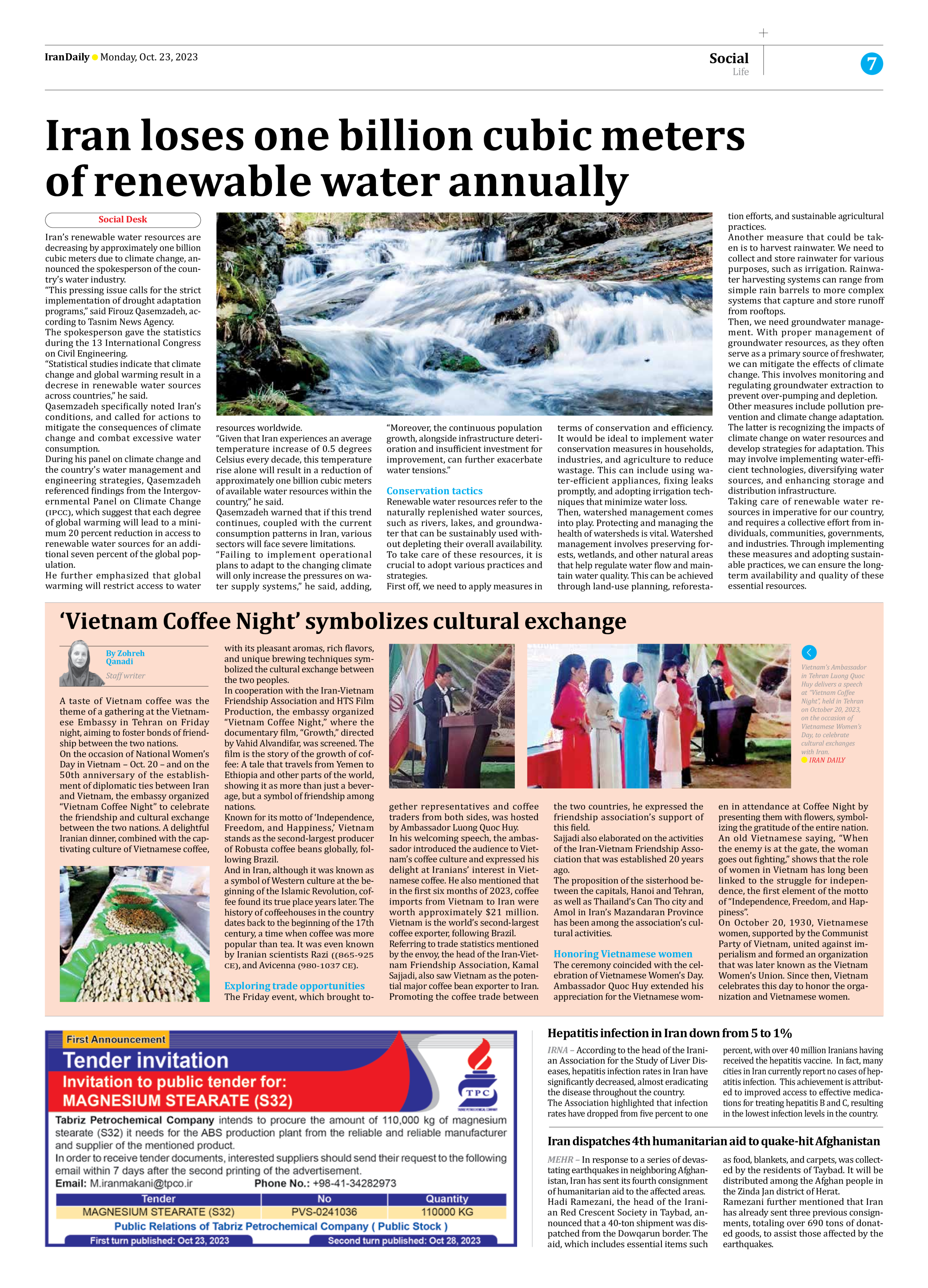
Iran loses one billion cubic meters of renewable water annually
Iran’s renewable water resources are decreasing by approximately one billion cubic meters due to climate change, announced the spokesperson of the country’s water industry.
“This pressing issue calls for the strict implementation of drought adaptation programs,” said Firouz Qasemzadeh, according to Tasnim News Agency.
The spokesperson gave the statistics during the 13 International Congress on Civil Engineering.
“Statistical studies indicate that climate change and global warming result in a decrese in renewable water sources across countries,” he said.
Qasemzadeh specifically noted Iran’s conditions, and called for actions to mitigate the consequences of climate change and combat excessive water consumption.
During his panel on climate change and the country’s water management and engineering strategies, Qasemzadeh referenced findings from the Intergovernmental Panel on Climate Change (IPCC), which suggest that each degree of global warming will lead to a minimum 20 percent reduction in access to renewable water sources for an additional seven percent of the global population.
He further emphasized that global warming will restrict access to water resources worldwide.
“Given that Iran experiences an average temperature increase of 0.5 degrees Celsius every decade, this temperature rise alone will result in a reduction of approximately one billion cubic meters of available water resources within the country,” he said.
Qasemzadeh warned that if this trend continues, coupled with the current consumption patterns in Iran, various sectors will face severe limitations.
“Failing to implement operational plans to adapt to the changing climate will only increase the pressures on water supply systems,” he said, adding, “Moreover, the continuous population growth, alongside infrastructure deterioration and insufficient investment for improvement, can further exacerbate water tensions.”
Conservation tactics
Renewable water resources refer to the naturally replenished water sources, such as rivers, lakes, and groundwater that can be sustainably used without depleting their overall availability. To take care of these resources, it is crucial to adopt various practices and strategies.
First off, we need to apply measures in terms of conservation and efficiency. It would be ideal to implement water conservation measures in households, industries, and agriculture to reduce wastage. This can include using water-efficient appliances, fixing leaks promptly, and adopting irrigation techniques that minimize water loss.
Then, watershed management comes into play. Protecting and managing the health of watersheds is vital. Watershed management involves preserving forests, wetlands, and other natural areas that help regulate water flow and maintain water quality. This can be achieved through land-use planning, reforestation efforts, and sustainable agricultural practices.
Another measure that could be taken is to harvest rainwater. We need to collect and store rainwater for various purposes, such as irrigation. Rainwater harvesting systems can range from simple rain barrels to more complex systems that capture and store runoff from rooftops.
Then, we need groundwater management. With proper management of groundwater resources, as they often serve as a primary source of freshwater, we can mitigate the effects of climate change. This involves monitoring and regulating groundwater extraction to prevent over-pumping and depletion.
Other measures include pollution prevention and climate change adaptation. The latter is recognizing the impacts of climate change on water resources and develop strategies for adaptation. This may involve implementing water-efficient technologies, diversifying water sources, and enhancing storage and distribution infrastructure.
Taking care of renewable water resources in imperative for our country, and requires a collective effort from individuals, communities, governments, and industries. Through implementing these measures and adopting sustainable practices, we can ensure the long-term availability and quality of these essential resources.







